Facility for recycling commercial salts from fly ash inaugurated
04.05.2023The environmental company Ragn-Sells opened the world's first facility for recycling commercial salts from fly ash from waste incineration. The plant in Upplands-Bro extracts salts with a 90 % lower climate footprint compared to traditional methods of salt production. Sweden’s Minister for Climate and the Environment Romina Pourmokhtari inaugurated the facility.
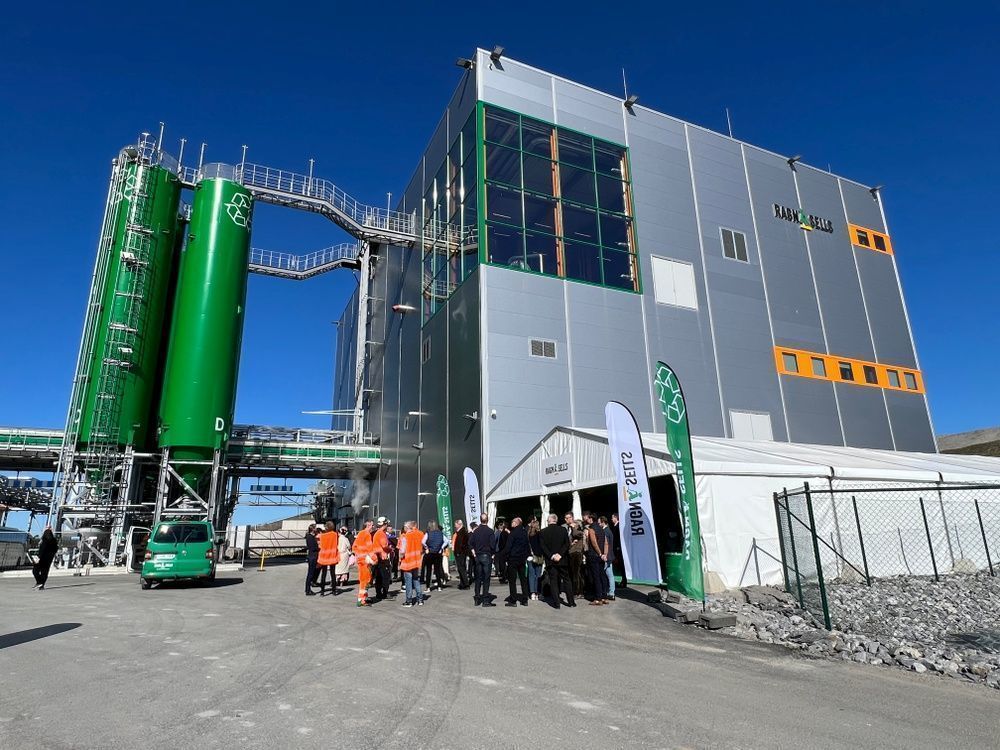 The new plant is the world's first to recycle commercial salts from fly ash on a large scale
The new plant is the world's first to recycle commercial salts from fly ash on a large scale
© Easy Mining
"Sweden will achieve net zero emissions by 2045, and the transition to a circular economy is a key component of that transformation. The technology in Ragn-Sells’ new facility is important, not the least because half of global greenhouse gas emissions are due to the extraction and processing of natural resources, while the extraction also has a profound impact on the environment. This means that we must reduce the use of virgin materials and instead, when possible, re-use the raw materials we can extract from existing materials," Minister for Climate and the Environment, Romina Pourmokhtari (L), said in her opening speech.
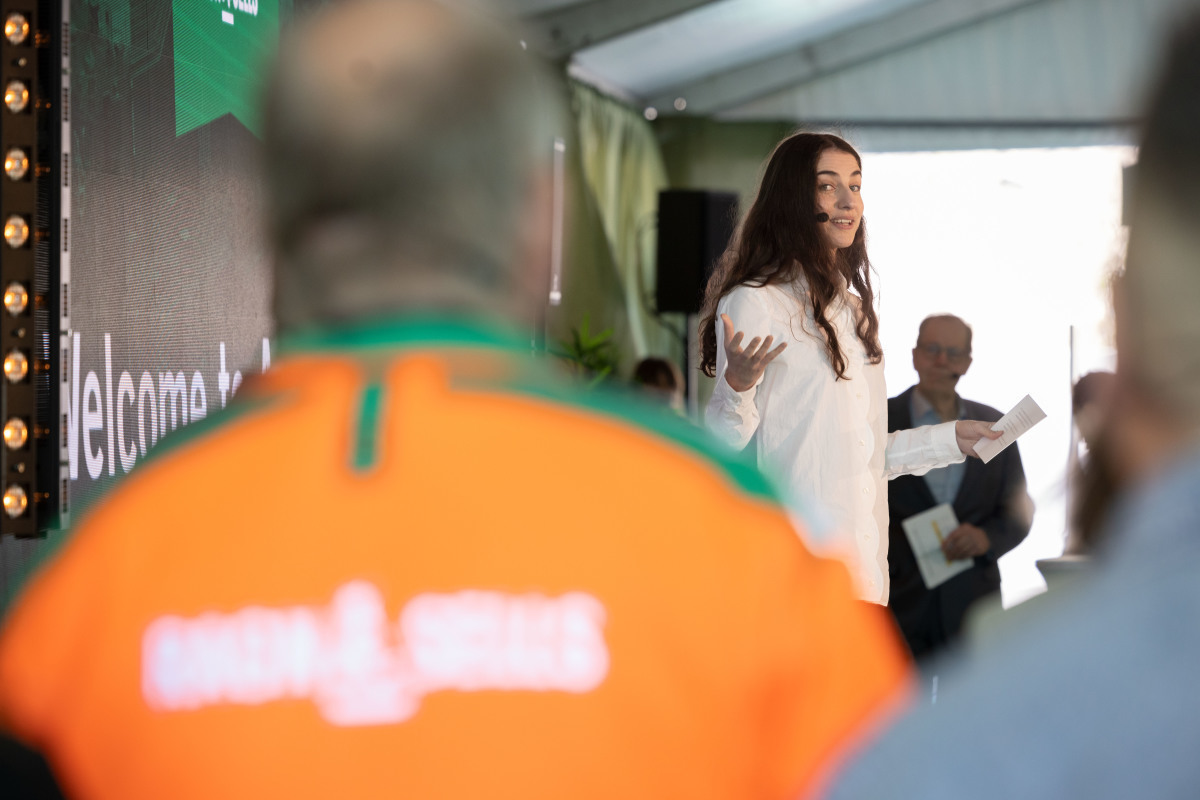 Sweden’s Minister for Climate and the Environment Romina Pourmokhtari inaugurated the world's first plant for recycling pure salts from fly ash on April 21
Sweden’s Minister for Climate and the Environment Romina Pourmokhtari inaugurated the world's first plant for recycling pure salts from fly ash on April 21
© Ragn Sells
Environmental company Ragn-Sells’ new facility is the world’s first to recycle commercial salts from fly ash on a large scale. Fly ash is formed when flue gases from waste incineration for cogeneration of heat and power are cleaned. The ash is a hazardous waste, but also contains large amounts of valuable raw materials such as potassium, sodium and calcium in salt form.
With the Ash2Salt technology – which was developed by Ragn-Sells and its innovation company EasyMining – as much as 200 kg of salt per tonne of ash can be extracted and used in, among other things, fertiliser and road salt. The salts’ climate footprint is one-tenth compared to traditionally produced salt. At the same time, heavy metals are removed from circulation.
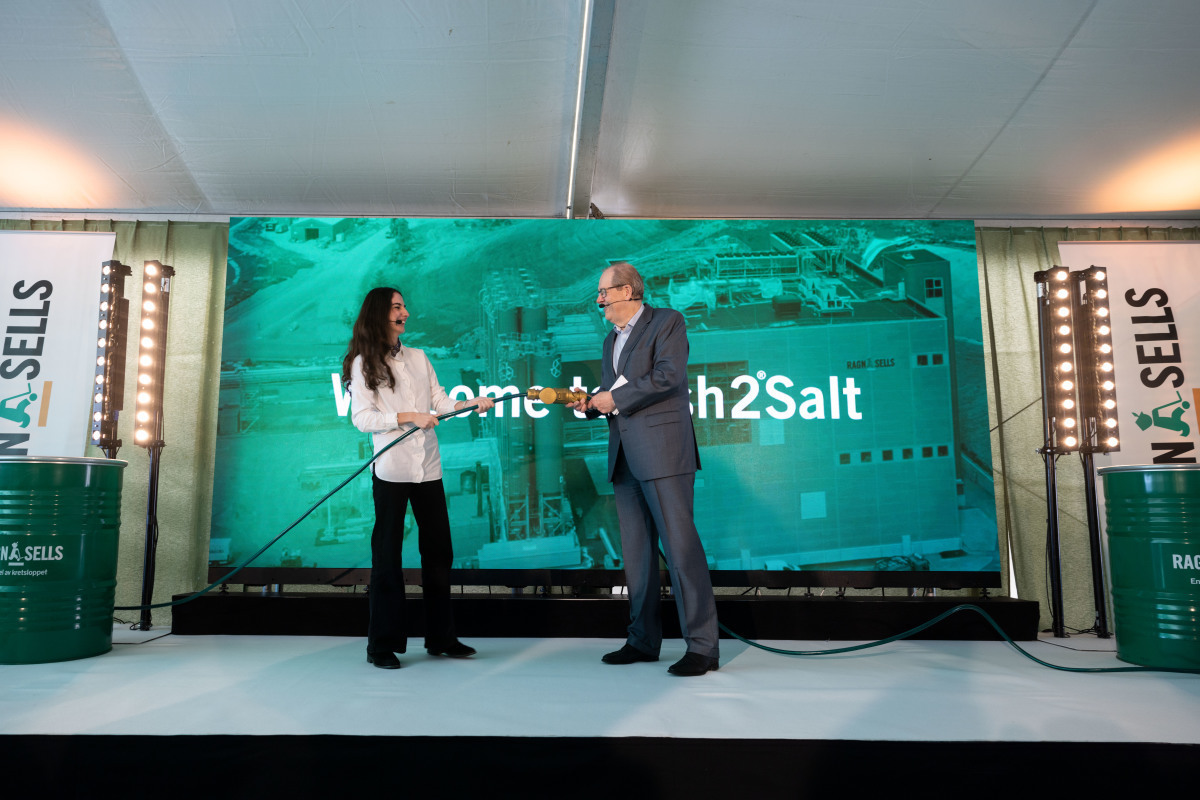 Climate and Environment Minister Romina Pourmokhtari and Erik Sellberg, chairman of the board and owner representative of Ragn-Sells, symbolically connected contacts during the inauguration ceremony
Climate and Environment Minister Romina Pourmokhtari and Erik Sellberg, chairman of the board and owner representative of Ragn-Sells, symbolically connected contacts during the inauguration ceremony
© Ragn Sells
"If we are serious about creating a sustainable society, we must start using the raw materials we already have, over and over again. Our technology transforms fly ash from a waste problem into a resource and contributes to reduced emissions since the raw materials do not need to be mined elsewhere," said Mikael Hedström, CEO of Ragn-Sells Treatment & Detox.
In Sweden alone, 300 000 t of fly ash is produced annually when seven million tonnes of waste is recycled into energy for district heating and electricity. Ragn-Sells’ new Ash2Salt facility will be staffed around the clock with a capacity to process up to 150 000 t of fly ash per year.
Ragn-Sells has seen strong interest in the new plant with several ash producers having signed agreements for washing fly ash prior to the inauguration.
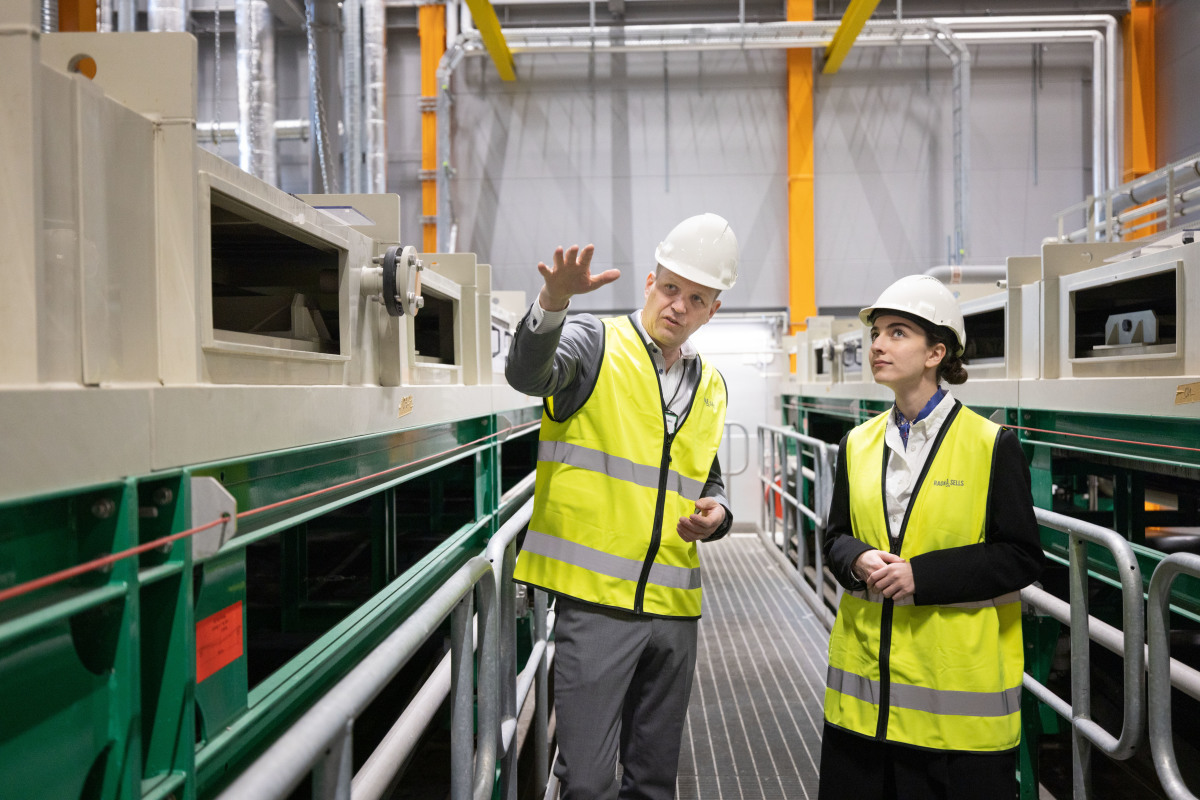 Climate and Environment Minister Romina Pourmokhtari and Mikael Hedström, CEO of Ragn-Sells Treatment & Detox, during a tour of the factory
Climate and Environment Minister Romina Pourmokhtari and Mikael Hedström, CEO of Ragn-Sells Treatment & Detox, during a tour of the factory
© Ragn Sells
Facts: The Ash2Salt technology
Fly ash is a product of air pollution control at incineration plants. It is a hazardous waste due to the high contents of heavy metals and chlorides. The Ash2Salt process washes the fly ash, and three commercial grade salts are extracted from the liquid: potassium chloride, sodium chloride, and calcium chloride.
After washing, the remaining ash can be placed on a landfill for non-hazardous waste. Read more here.
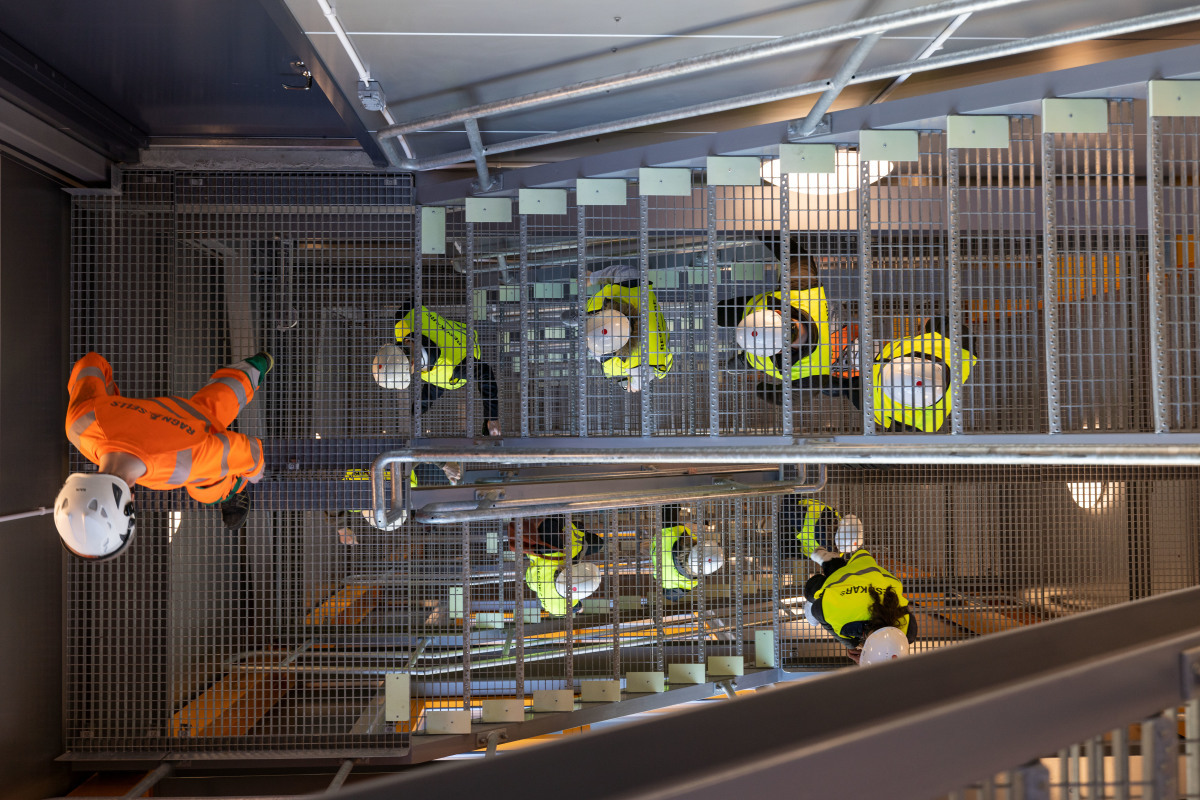 During the tour of the factory
During the tour of the factory
© Ragn Sells
Facts: Salts
The salts sodium chloride (common salt), potassium chloride and calcium chloride are used to produce plastics, glass, paper, soap, paints, fertilisers and medicines. Salts can also be added to improve food, animal feed, fabrics and construction materials or to combat slippage and bind dust.
